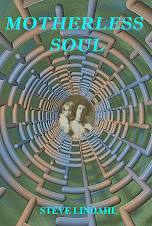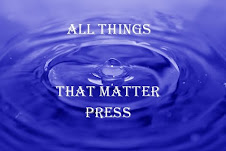 The Wind-Up Bird Chronicle
The Wind-Up Bird Chronicle by
Haruki Murakami
My rating:
5 of 5 stars
The first pages of
The Wind-Up Bird Chronicle are filled with quotes from critics: “Mesmerizing,” “Compelling,” “Bold and generous,” the list goes on and on like posters at the box office of a Broadway play. I'm not sure I would have finished this novel if I hadn't known the level of critical acclaim it has received. Haruki Murakami breaks so many rules, it feels as if halfway through a football game the team owners decided to drop all controls and allow the players to have a street brawl. Yet once I made the effort it takes to read this novel, I found the accolades were justified. It's not a book to get lost in. It's a book to learn from, to appreciate for its unique qualities and for the way these qualities might influence other writers.
This is the story of Toru Okada, a young Japanese husband who loses both his cat and his wife. He seems to have a similar response to both those losses, going out in search of the cat while also maintaining a concern for his missing wife. This is the first taste of an aspect of this story that is unusual. People care about each other, but not with a great deal of emotion. Throughout the novel we pull for Okada to find his wife and reconcile with her, but it is more about reestablishing order than it is about love. A Newsday critic said this book presents “A vision no American novelist could have invented...” As a reader, I also have a very American perspective, which may be why I find this a bit strange.
Okada's wife, Kumiko, has a brother, Noburu Wataya, who is a prominent politician and someone involved with Kumiko's disappearance. He is an excellent speaker and very popular, but also quite corrupt. He is Toru's nemesis throughout the story. Noburu Wataya is also the name of the cat, which is an attempt at irony on the part of Kumiko and Toru.
Another interesting character is May Kasahara, a young, school age girl, whom Toru meets while searching for his cat. She calls him “Mr. Wind-Up Bird,” because she has trouble remembering his real name. The name comes from a story he tells her about a bird whose call sounds like the winding of a giant spring. May tells Toru things like, “You might think you made a new world or a new self, but your old self is always gonna be there, just below the surface and if something happens, it'll stick its head out and say. 'Hi.'” May is a foil for Toru's odd thoughts.
Two other important characters are the sisters, Malta and Creta Kano. Malta is the first of the two to contact Okada, who has been told in a phone conversation with Kumiko that he needs to speak with her. They meet and have a very odd conversation where he learns about Creta. Later he has an erotic dream with Creta in it and when he meets her she knows of the dream and says, “I am a prostitute. I used to be a prostitute of the flesh, but now I am a prostitute of the mind. Things pass through me.” The book is filled with strange, seemingly disconnected events and people, who come together in odd ways.
In the latter part of the novel, the story branches off to tell about the Japanese control over Manchuria beginning in 1931 and the joint Mongolian-Soviet resistance. These are some of the most violent, but authentic parts of the book. These sections lack the dreamlike qualities of the rest of the novel, but they include people and incidents that are interconnected with the rest of the story.
Steve Lindahl – author of
Motherless Soul,
White Horse Regressions,
Hopatcong Vision Quest, and
Under a Warped Cross.
View all my reviews
 Silent in the Grave by Deanna Raybourn
Silent in the Grave by Deanna Raybourn






























